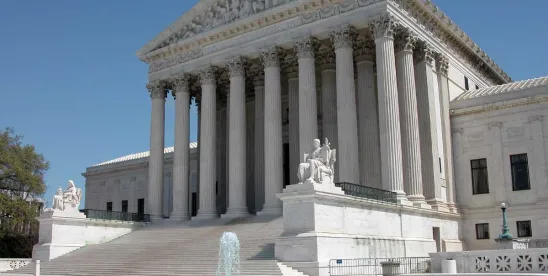The Supreme Court will review the Ninth Circuit’s decision in Ohman v. Nvidia Corp., which affirmed in part and reversed in part the district court’s dismissal of claims brought against Nvidia and three of its officers under the Securities Exchange Act of 1934. The appeal will provide the Supreme Court with the opportunity to resolve two splits among the circuit courts in applying the heightened pleading standard for securities fraud under the Private Securities Litigation Reform Act of 1995 (PSLRA).1
The securities fraud action was premised upon the defendants’ alleged non-disclosure of the number of graphics processing units (GPUs) Nvidia had sold for cryptocurrency mining purposes.2 Plaintiffs alleged that this omission gave investors a false impression of Nvidia’s exposure to the volatile cryptocurrency market, which, when it faltered, ultimately led to losses among Nvidia’s shareholders.3
The first circuit split prompted by the Ninth Circuit’s decision relates to the level of detail plaintiffs must provide in order to satisfy the strong inference of scienter requirement under the PSLRA. In Nvidia, the plaintiffs attempted to plead scienter by referencing internal company reports which were allegedly inconsistent with the defendants’ public statements concerning the GPUs. However, plaintiffs did not actually provide the details of the reports, instead relying on suppositions about what the reports were likely to have said. The divided Ninth Circuit held that this was sufficient to satisfy the PSLRA. Its holding was consistent with First Circuit precedent, but was inconsistent with five other circuit courts (the Second, Third, Fifth, Seventh, and Tenth), all of which have held that pleading scienter based on internal company reports requires specific allegations of the actual contents of those documents.4
The second circuit split pertains to whether an expert opinion could substitute for the particularized allegations of falsity required under the PSLRA. In Nvidia, the Ninth Circuit concluded that defendants statements were false based upon an expert opinion proffered by the plaintiffs and included in the complaint. However, both the Second Circuit and the Fifth Circuit had previously disagreed, holding that while expert opinions could potentially bolster allegations of falsity, they could not substitute for particularized allegations of fact under the PSLRA.
The stakes are high here. As the dissent in Nvidia observed, the Court’s holding “majority's approach significantly erodes the heightened pleading requirements for alleging securities fraud under the PSLRA” and threatens to undermine the important counterbalance to frivolous securities lawsuits which the PSLRA has provided since its enactment.5 The Supreme Court’s decision on both issues will have a widespread impact on securities lawsuits.
1 Nvidia Corp. v. Ohman J, No. 23-970, 2024 WL 3014476 (U.S. June 17, 2024); 15 U.S.C. § 78u–4(b)(1)–(2).
2 E. Ohman J:or Fonder AB v. NVIDIA Corp., 81 F.4th 918, 923 (9th Cir. 2023), cert. granted sub nom. Nvidia Corp. v. Ohman J, No. 23-970, 2024 WL 3014476 (U.S. Mar 6, 2024).
3 Id.
4 Nvidia Corp. v. Ohman J, No. 23-970, 2024 at *4 (U.S. Mar 6, 2024) (collecting cases).
5 Id. at 955.
Audrey Nelson contributed to this article




 />i
/>i

